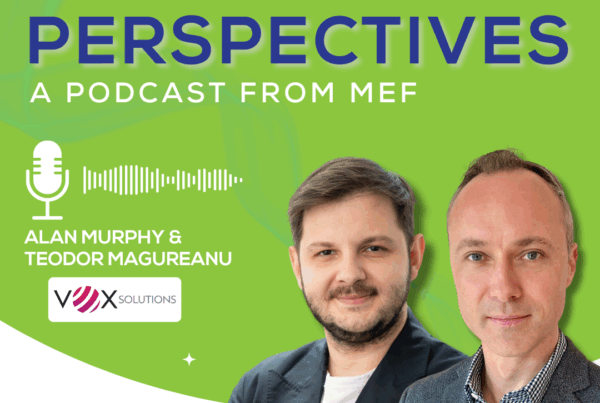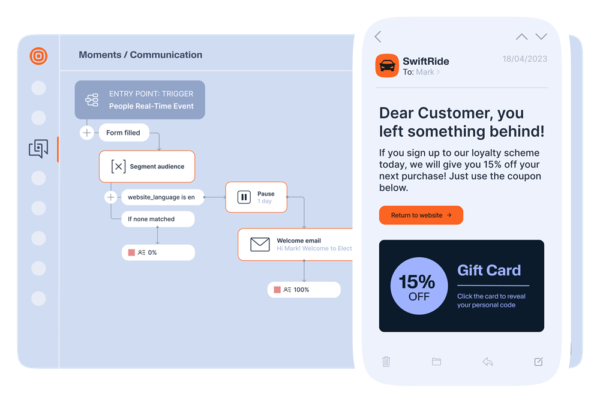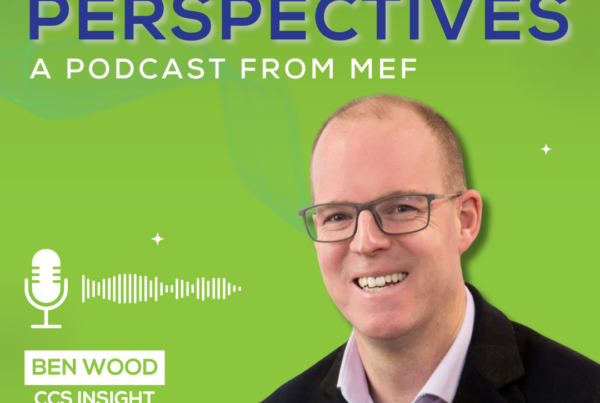In our continuing Executive Interview series, MEF Features Editor Tim Green speaks to Sergey Lossev of Opera about the great success of its mobile web browser, Opera Mini, and how its new product Opera Max is set to further tackle the issue of high data consumption.
For ten years now, Opera Mini has been the browser of choice for data-conscious mobile users.
It was launched in 2006 in a market dominated by feature phones. Mobile web usage was still modest at this time, but Opera could see the world moving towards mobile-first access, and correctly anticipated a market gap for a fast and friendly browser.

Opera Mini reduced the data load of some sites to 90 per cent of their standard size. In an era of 2.5g and costly data prices, this served the dual purpose of speeding browsing up and making it cheaper.
By March 2012, Opera Mini had 168.8 million users. A year later, there were 300 million.
Opera accelerated the take up by doing pre-load deals with operators such as Vodafone and OEMs like Nokia.
If you think you’re getting a good deal, you will ultimately spend more money. We’ve done multiple studies with Opera Mini on this, and it’s true. Consumers up their data consumption when they trust the system.
Opera Mini remains a successful and much-used product all over the world. But in the last few years, the way people consume online content has changed. It’s no longer all about the browser and the web. Many mobile users have switched to apps.
Of course, the same underlying problem exists whether you’re browsing web pages or using apps: how to reduce the data consumption.
Needless to say Opera thinks it’s well-placed to tackle the issue. That’s why it launched Opera Max.
Appropriately enough, it’s an app.
Opera Max is as much about information as compression. It gives the user a dashboard showing all apps on the device and then displays how much data they consume – both in active use and in the background when they are not being run.
The latter is particularly important. Opera’s own research revealed that on average over 30 per cent of all data is used by apps running in the background.
It said Facebook Messenger and Gmail are the most data-hungry apps, with up to 73 per cent of their total data usage happening this way.
Crucially, Opera Max gives users a two-tap feature to block such apps from using mobile data, and also offers Smart Alerts that are triggered when it detects excessive background data usage of over 10 MB per week.
These alerts show up inside Opera Max as a card in the ‘data usage timeline’ – a section that gives a kind of scorecard of apps by data consumption over days, weeks and months.
The point of all of this is to return control to nervous smartphone users.
Sergey Lossev, head of product for Opera Max at Opera, says: “The simple goal is to connect more people by lowering cost of data plan, just like we did with our other Opera products.
“The key is to give people information, especially about what’s happening in the background with app usage. If people don’t understand where their money is going, they just won’t trust it.”
This last point helps Opera answer the obvious question around Max: why should operators support a product that reduces their revenue from data?
“We liken it to the Costco or Ikea effect,” says Lossev. “If you think you’re getting a good deal, you will ultimately spend more money. We’ve done multiple studies with Opera Mini on this, and it’s true. Consumers up their data consumption when they trust the system.”
In less than a year, Opera Max has been downloaded nearly 10 million times. It’s also attracted the attention of OEMs, who are keen to provide the best experience to their customers.
14 OEMs have pre-loaded it. Samsung did so on one model in India last year, and is now increasing that to eight.
What pleases Lossev about the arrangement is the way Samsung implemented Ma, presenting it as a simple ‘ultra-saving’ button next to other basic functions like airplane mode.
He says: “No one wakes up and says ‘I need data compression’. And equally, there are some consumers who wrongly think something like Max will compress their photos. So we have to make it very simple for people to understand. It’s great what Samsung are doing. And it explains why we do ads with Bollywood actors, which simply show a single button and say ‘press this to save money on data’.
For the moment, Max is free to download and use. But Opera has plans to monetise with ads. And given that it’s sitting on a wealth of information about ad usage, it is confident it can target these ads accurately.
Features Editor
MEF Minute


It helps that Opera also runs a thriving ad unit. In fact, Opera Mediaworks is the third biggest mobile ad network in the world after Google and Facebook (big enough to make it the subject of constant takeover speculation).
In Q2 2014, Mediaworks became the largest source of revenue for Opera (51 per cent of total revenues) with advertisers including American Express, McDonald’s, Coca-Cola, P&G and BMW.
Lossev says: “We’re growing our user base for now. But there will be ads in the product one day. We’re aiming for Netflix-style targeting and recommendations.”





